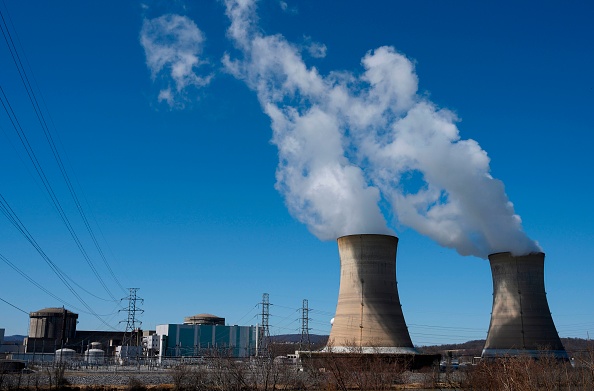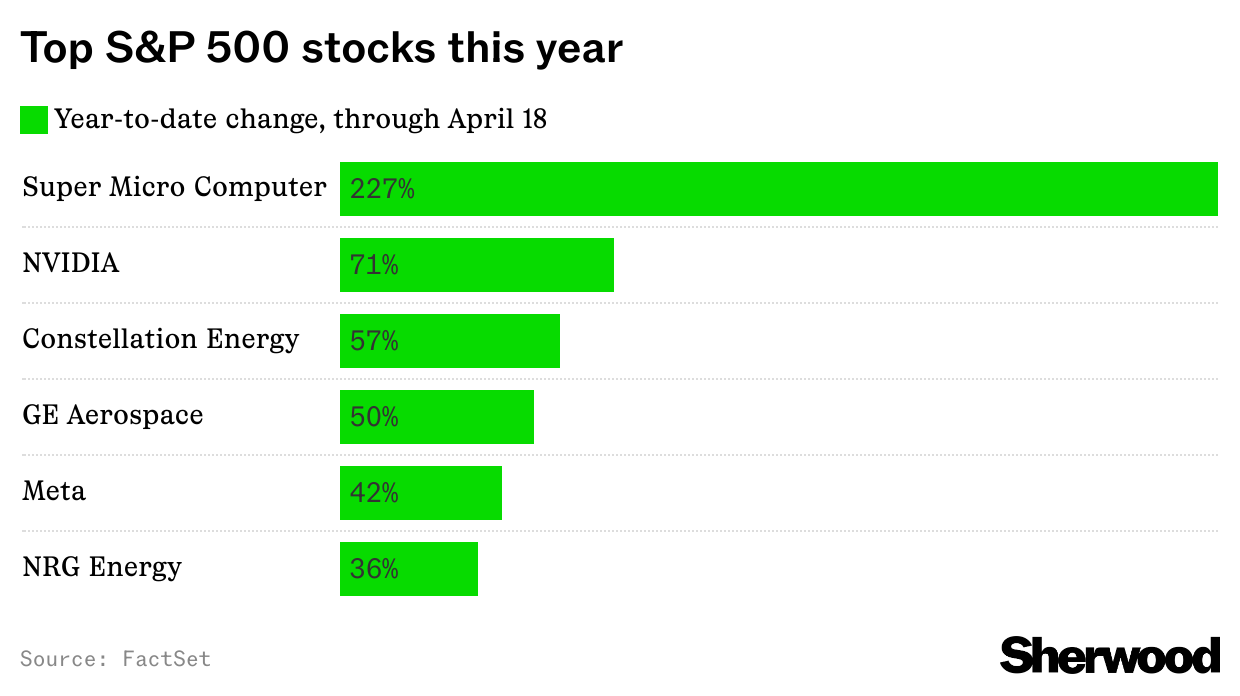Monday Jul.26, 2021
🎭 Facebook's presidential drama
_How tech giants drop earnings [Donald Iain Smith/Photodisc via GettyImages]_
Hey Snackers,
Your sweet tooth may be cosmic. New research suggests that the universe is a giant donut.
Stocks soared to record highs last week, rebounding from last Monday's plunge as investors reacted to strong corporate earnings. The techy Nasdaq index rallied nearly 3% ahead of Big Tech earnings this week.
Zucked
Facebook's Biden drama: misinformation has hurt the social giant's rep — but not its biz
Drama in the feed... This month, President Biden said social platforms like Meta are "killing people" with Covid misinformation. Facebook's response: a blog post called "Moving Past Finger Pointing." In short, Facebook says it's not its fault that Biden failed to get 70% of American adults vaccinated by July 4th. Biden walked back his comments, but said social platforms should do more to tackle misinfo. As the Delta variant spreads, Covid cases have been surging among the unvaccinated.
- Biden believes anti-vax content is a key reason some remain unvaxed. A recent study found that 95% of Covid misinfo reported across social platforms wasn't removed.
- Facebook says it has removed 18M instances of Covid misinfo, and that 85% of its US users have been, or want to be, vaccinated.
Déjà vu vibes... This public spat is part of a much broader issue of content moderation on Facebook, spanning from election interference, to hate speech, to the Capitol riots. Last year, 1K+ advertisers, including big shots like Verizon, paused spending on FB ads to protest its moderation policies. That didn't make a dent in FB's sales. Despite the criticism, FB's biz is thriving, and its stock is at a record high:
- For the quarter ended in March, FB's ad sales soared 48% from last year to $25B, and profit nearly doubled to $9.5B.
- When FB reports this Wednesday, analysts expect $28B in quarterly sales, or 60% growth from last year — even faster than the previous quarter.
FB's biggest threats are external... For now, Facebook's 3.5B monthly users across FB, Insta, and WhatsApp mean advertisers are hooked. Misinformation doesn't seem to be hurting its biz — but intensifying antitrust scrutiny and competition from Gen Z-loved apps could. Last year, FB lost users in North America as TikTok blew up. Meanwhile, Biden has tapped Big Tech critics to lead on antitrust regulation. Potential breakups or blocked acquisitions could become existential threats.
Events
Coming up this week...
Big Tech earnings... drop together. Apple, Microsoft, Amazon, Google, and Meta report quarterly numbers this week. Last quarter, the "Big Tech 5" demolished earnings. Amazon and Apple had their best first quarters ever, Google's profit more than doubled, and Microsoft posted its strongest growth since 2018. The Nasdaq index, which is dominated by the Big Tech 5, is up 17% this year. Despite reopenings, some online pandemic habits seem to have stuck, and even intensified. But tougher antitrust regulation could spell trouble for the "Tech 5" down the line.
Oil or caviar?... You're feeling it at the pump: US gas prices are up 45% from last year. After oil prices plunged in March 2020, OPEC cut oil production to stop the free fall. Now, the powerhouse org of 14 oil-exporting countries has agreed to boost production, as oil prices hit their highest levels in more than two years. We'll see if higher prices helped Shell, Exxon, and Chevron when they report earnings this week. The oil giants are also facing pressure to embrace renewable energy.
Zoom Out
Stories we're watching...
Delta rising... A surge in Covid cases driven by the highly-contagious Delta variant is pouring cold water on recovery optimism. Delta now accounts for an estimated 83% of all new Covid-19 cases in the US. The CDC is calling it "a pandemic of the unvaccinated," and a few big counties, including LA, have brought back indoor mask mandates. Last Monday, the Dow stock index had its biggest one-day drop since October. Stocks have since recovered, but we could see more volatility ahead.
The "House Hype" is real... And it's not a TikTok creator mansion. The housing boom pushed the median US home price to a record high of $363K last month. Homeowners have benefited, gaining $1.5T last year as home values soared. But after more than a year of extreme home shopping, the tight housing supply is increasing, and is expected to grow through the rest of this year.
ICYMI
Last week's highlights...
- Opioid: Four major drug companies that have been blamed for fueling the opioid epidemic reached a historic $26B settlement with states.
- mRN-ASAP: Vax-maker Moderna joined the prestigious S&P 500 index, but its real power lies in its mRNA platform.
- Juicy: Tesla is opening up its exclusive Supercharger networks to other EV brands — Elon just made "the pizza decision."
What else we’re Snackin’
This Week
- Monday: Earnings expected from Tesla and Lockheed Martin
- Tuesday: Earnings expected from Apple, Microsoft, Google, Visa, UPS, Starbucks, 3M, and General Electric
- Wednesday: Jerome Powell press conference. Earnings expected from Facebook, PayPal, Shopify, Spotify, Pfizer, McDonald’s, and Boeing
- Thursday: Weekly jobless claims. Earnings expected from Amazon, Mastercard, Comcast, T-Mobile, Bud-owner AB Inbev, Twilio, Shell, PG&E, and Zendesk
- Friday: Consumer spending numbers drop. Earnings expected from P&G, Exxon, Chevron, and Caterpillar
Authors of this Snacks own shares of: Apple, Google, and Microsoft
ID: 1735679
.png)

